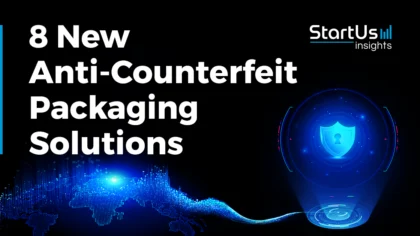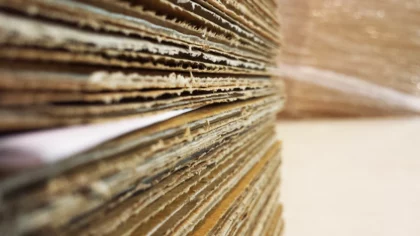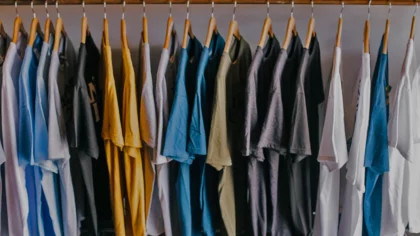Consumers today are demanding more information about the products they buy, presented to them in a clearer manner. At the same time, consumer packaged goods (CPG) companies are looking for ways to gain an advantage over the competition. This drives innovation in packaging technology with startups addressing several challenges facing companies and consumers. From using sustainable materials and reducing or eliminating waste by recycling to robotic packaging systems and augmented reality (AR), emerging packaging companies develop a range of innovative solutions.
Top 5 Global Startup Hubs: Packaging
Using our StartUs Insights Platform, we analyzed the geographic distribution of global activity in the packaging industry. We identified 45 regional hubs* that observe high activity in developing technology-driven solutions across the industry such as sustainable packaging and materials, robotics and automation, and connected packaging, to name a few.
Within the hubs, we analyzed a sample of 898 startups and emerging companies employing technology-driven solutions to innovate in the industry. London, New York City, the San Francisco Area, Los Angeles, and New Delhi are home to 214 startups* and account for 24% of global packaging activity. Let us have a look at some of the innovative solutions from these 5 top hubs.
Based on our sample of 898 startups, North America accounts for nearly half of all activity in packaging. With the United States being one of the largest consumer markets globally, there are several hubs all across the region. Europe, with prominent hubs in Berlin and Amsterdam, comprise a third of all startups developing packaging technologies.
A growing number of packaged goods find their way to both emerging Asian supermarkets, as well as to small stores that cater to a majority of the population. China, along with India and Singapore, observes more than 20% of the packaging startup activity.
1. London: 56 Startups
The UK is home to one of the most productive packaging sectors across the world driven by manufacturing technology and packaging innovations. From establishing education hubs to find future talent for the industry to focus on eliminating the environmental impact of single-use packaging, this hub leads the way forward and presents startups with numerous opportunities for development.
Sustainable materials startup envoPAP is based out of London and produces several eco-friendly paper packaging products. All their products are certified as biodegradable, in water bodies as well, compostable, recyclable. Besides, they employ energy-saving production processes. The startup’s kraft paper family includes an odor neutral material that comes with a wet-strength option for high barrier protection against the effects of moisture and oxygen. This makes it a safe alternative for direct food contact or wrapping.
2. New York City: 53 Startups
The most populated US city, New York City, leads the country’s efforts to reduce packaging waste and create infrastructure for large-scale distribution centers. Like some other states, New York has banned the use of single-use and disposable plastics, while increasing the focus on recycling and reusability. With strong support systems for innovations in biotech and logistics, this hub offers startups the opportunity to find and collaborate across sectors to improve packaging.
Curie Co is a New York City-based startup developing proprietary OceanSafe technology that uses enzyme engineering and recycled marine biomaterials to completely replace retailer-banned chemicals. The process is 100% sustainable and safe and produces affordable bioplastic that is suitable for packaging and personal care products. In addition, the startup uses enzyme engineering to produce personal care preservatives and first-aid products for wound care.
3. San Francisco Area: 46 Startups
The global home of technology, Silicon Valley, is also home to numerous packaging and CPG companies’ innovation centers. From P&G and DuPont to Nestle, big companies with packaging operations take advantage of the talented workforce to develop strategies to better engage with new segments of customers. The main focus of many packaging startups in this hub surrounds packaging design and consumer experience enhancements.
Operating from Santa Cruz in California, Cruz Foam creates sustainable and scalable foam products for different industries, including consumer and b2b packaging. The startup’s patent-pending, water-based technology transforms an abundant biopolymer, ocean crustacean, and chitin waste into an engineered structural foam. Moreover, they employ an all-natural and proprietary process to convert the Cruz Foam material into large or small-scale packaging.
4. Los Angeles: 31 Startups
The second most populated city in the US, Los Angeles, is also a leader in developing sustainable packaging solutions. With higher rates of adoption for recycling and a growing base of environmentally-conscious residents, it drives innovations in the sector. In addition, the demand for clean labels and the sheer range of products available in the markets present startups with the opportunity to design technology-driven food packaging solutions.
Los Angeles-based startup Lumi provides brands and manufacturers with a packaging supply chain management platform. Starting from sourcing through to delivery, the platform uses real-time analytics to support purchasing and packaging partner selection. Their clients create their sustainable packaging profiles in the platform with options for materials and recovery, production, distribution, and design. In addition, they also offer packaging products made from sustainable materials.
5. New Delhi: 28 Startups
India has a big packaging industry, from retail to food and pharmaceuticals, that presents emerging companies with the opportunity to employ technology in the packaging value chain. New Delhi, famous for the many residential markets that attract the local crowd, is slowly shifting towards using sustainable materials and automation to reduce waste. With overutilized landfills burning all kinds of waste, tackling packaging is important for this region to overcome several other issues, from air pollution to public health concerns.
Based out of Noida near New Delhi, Addverb is a startup offering warehouse automation solutions for a range of industries, including packaging. Their autonomous mobile robots perform the picking, heavy lifting, and moving tasks, reducing the manual effort usually used for the same task. The startup employs a range of technologies including artificial intelligence (AI), IoT, deep learning, and computer vision to create highly flexible and customized solutions for optimizing clients’ operations.
What’s Next?
Innovation in the industry is a response to both the consumers, in the form of sustainable materials and options, as well as by companies, looking to reduce costs and improve consumer experiences. Automating packaging processes, improving accountability with the help of the Internet of Things (IoT), and developing circular models for reducing wastes will drive the sector into the future.
*We define a hub as the regional geographic center of activity for this topic. It covers the center point with a radius of 100km. We define startups as those founded after 2015.

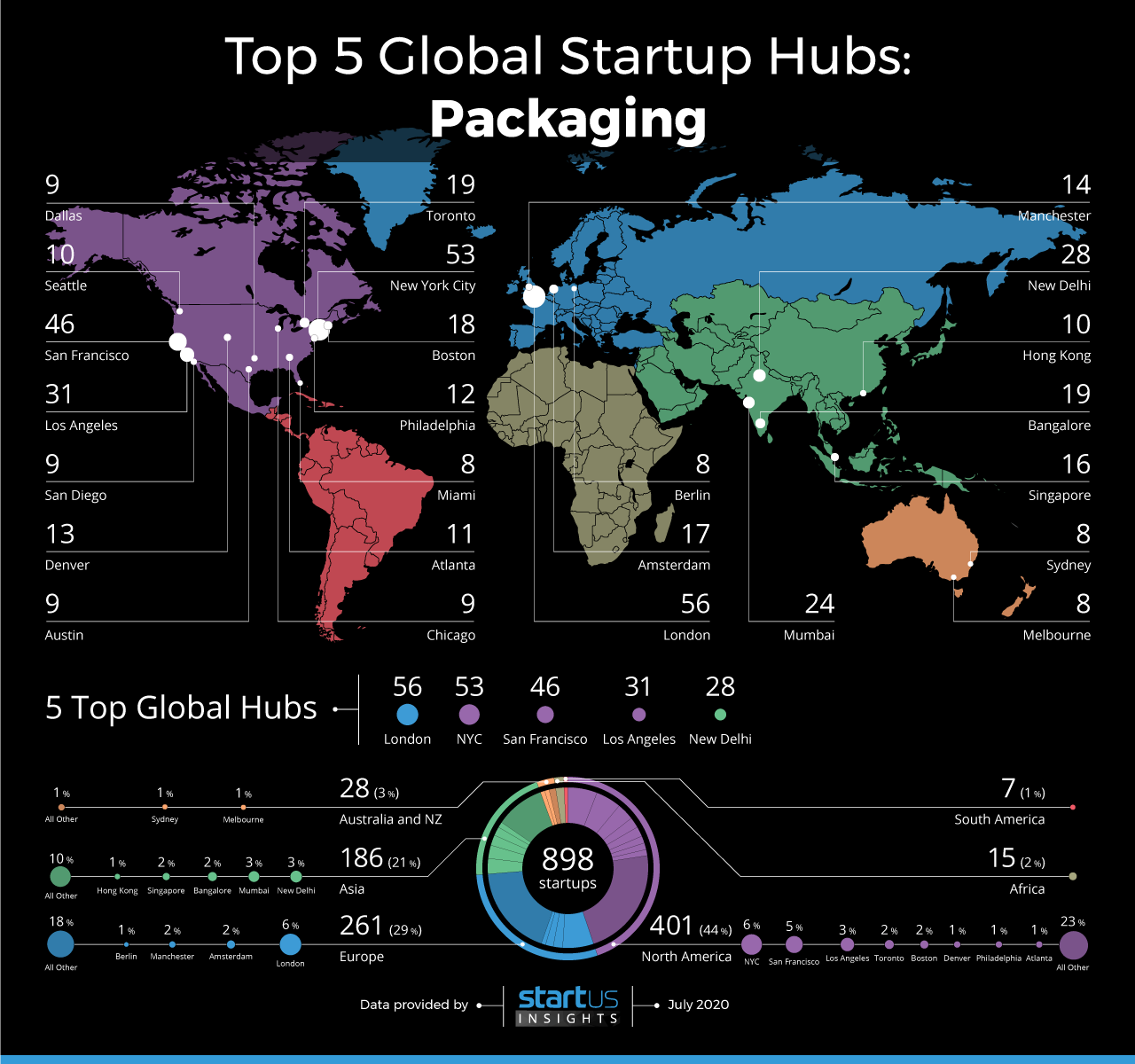
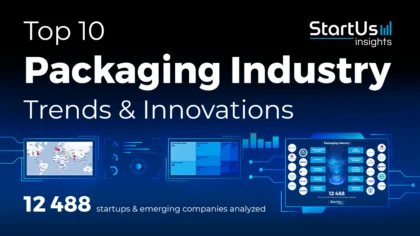
![Packaging 4.0 : Top 9 Digital Transformation Technologies to Watch [2025]](https://www.startus-insights.com/wp-content/uploads/2025/02/Packaging-4.0-SharedImg-StartUs-Insights-noresize-420x236.webp)
